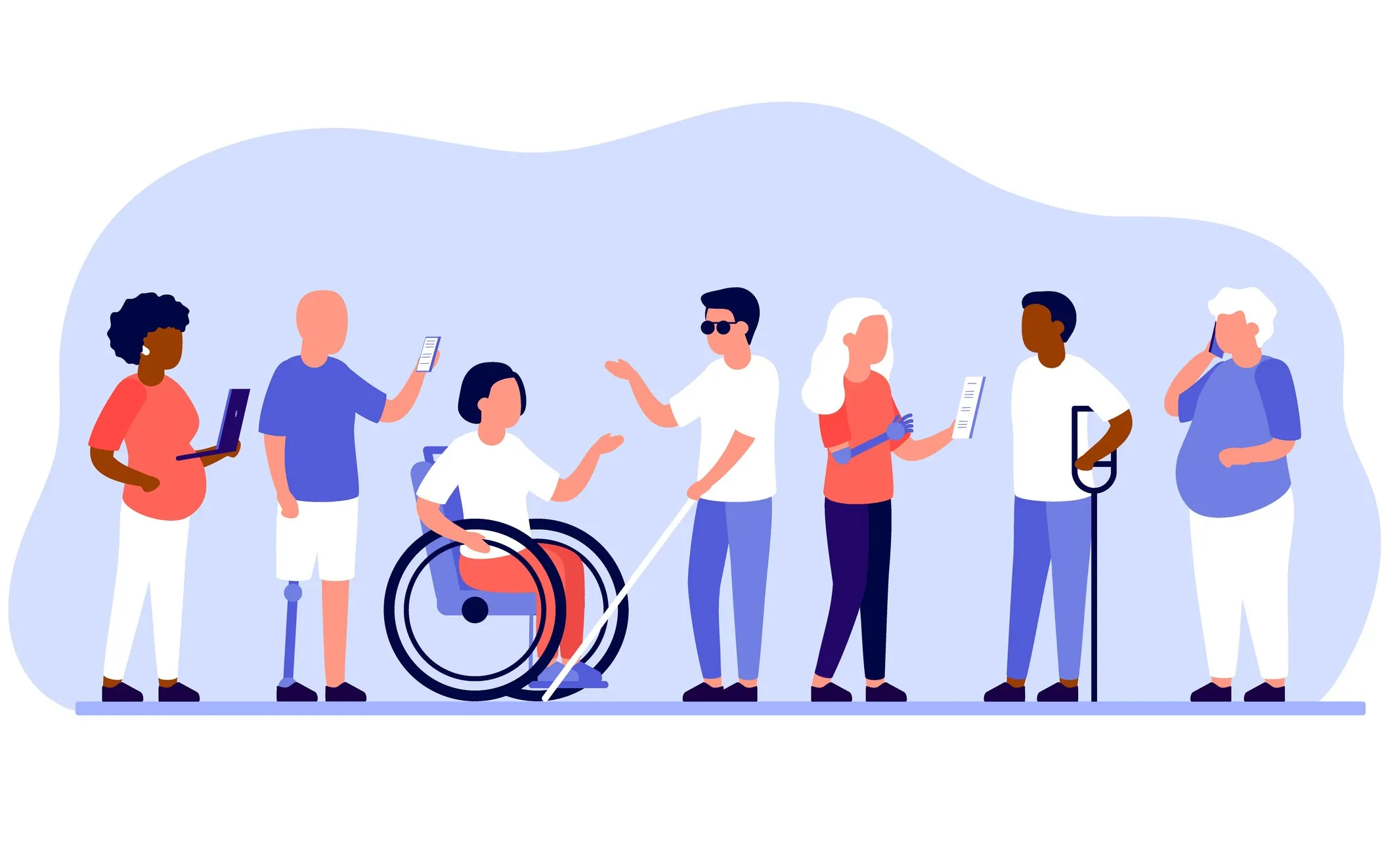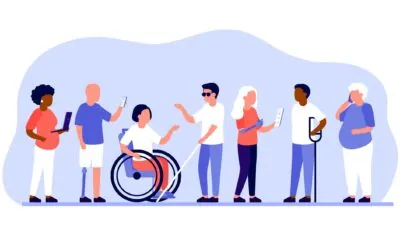Every generation varies not only in work styles, leadership styles, and communication styles but also in what they value most.
Having such a diverse workforce allows a business to harness the multitude of assets of these distinct generations and age groups.
By using these generational differences to your advantage, you can create a powerhouse team, but how do you put together a benefits package that appeals to multiple generations in the workplace and fosters an inclusive work culture for employees of varying age groups?
How Many Generations Are in the Workplace?
Currently, five generations of professionals are working:
- Traditionalists
- Baby Boomers
- Generation X
- Millennials
- Generation Z (Gen Z)
This classification encompasses every generational cohort age 16 to 75, and all generations have something unique to offer to the modern workplace.
While the older generations bring industry expertise, younger generations heavily contribute to innovative ideas in their field.
By building bridges to traverse the generational gap and edifying the different age groups as one, a business can successfully create a cohesive work style that appeals to all.
1. Traditionalists (Silent Generation) 1925-1945
A generation with the Great Depression and World War II as bookends, despite the fact they are at retirement age, they refrain from leaving the workforce and this segment does nothing but increase in numbers.
This age group of 75+ is forecast to grow by over 95% in the next decade. Influenced by radio and film, they value job security, reliability, and stability.
They are traditionalist workers who value seniority, respect, and rulesbecause they were built to remain loyal throughout their professional lives to one single firm.
Their communication style is handwritten rather than email.
This generation has a focused and strong work ethic.
Hard-working individuals, baby boomers define themselves by their professional accomplishments. Many retired during the pandemic, freeing up jobs for younger generations in the workplace.
Self-assured, goal-oriented, and competitive, they value relationships and are known for being resourceful.
Shaped by anti-war, civil rights movement, and the women’s movement, Baby Boomers are online en masse.
Baby Boomers prefer communication styles that bring them face to face with others and value structure in the organizations they work.
This generation prioritizes personal connections and formal communication, appreciating phone calls, meetings, and memos more than others.
Generation X stayed at home alone while their mothers went back into the workforce. These latchkey kids are known for their independence and resourcefulness.
Maintaining a healthy work-life balance is imperative, and they have fully embraced social media and technology.
Thanks to their childhoods, Gen Xersvalue freedom and independence and enjoy overcoming challenges on their own.
They were the first to grow up with personal computers, so feel completely at home with them.
This is the generation responsible for creating the concept of work-life balance, and they place great value on their personal lives.
Influenced by the Columbine massacre, the AIDS epidemic, 9/11, the Iraq and Afghanistan War, and the development of the internet, Millennials entered the workforce amidst a recession, straddled with student debt, putting their purpose-oriented, tech-savvy, civic-mindedness to the test.
They may move to another career because of their work-life balance problems.
Millennials appreciate meaningful work, good managers, teamwork, independence, flexibility, and work-life harmony, allowing them to have a personal life outside of work.
There is also a great desire for professional development opportunities.
Communication style is via text messages and email, not phone calls. They want their employers to get acquainted with them and seek praise, placing great value on immediate feedback.
Gen Z employees are typically independent, entrepreneurial, and competitive, though they are best engaged with companies that have firmly endorsed, sustainable social responses.
The younger workers in Gen Z want personal connections at the office because they grew up on digital platforms.
Empathy and open and honest communication skills are key priorities in their work. Although their professions do not directly relate to personal identities, they want conversations about their values with colleagues.
Gen Z likes to switch jobs, and a new survey found they typically change careers at least three times.
These younger employees want an inclusive environment where everyone should be treated as part of the best possible culture to achieve their goals.
Seekinginstant recognition, immediate feedback, and growth opportunities, Generation Z brings fresh ideas to the table.
How to Bridge the Generational Divide in a Hybrid Workplace
Generational variations are often more apparent in today’s typical work environment, but there are many ways to mend the generational gap, demolish generational stereotypes, bolster career progression inside an organization, and promote retaining talent despite these generational differences.
Support mutual understanding and open lines of communication by sponsoring team-oriented activities that push the current workforce to come together.
2. Offer Flexible Work Arrangements
Flexible work arrangements are just one of the things that accommodate both preferences amidst the generational divides that exist in the work environment.
Older generations may have difficulty with remote work, while younger people prefer flexibility and doubt the need to constantly be in the office.
Craft a company culture of inclusivity and collaboration, one that rewards knowledge transfer from older workers to the youngest members and vice versa when it comes to how to use new technologies.
4. Help Employees Get Ahead With Mentorship Programs
Use the expertise and generational strengths to your advantage with mentorship programsthat provide career development opportunities.
5. Update Your Benefits Package
Offer a competitive benefits package that appeals to all generations.
Highlight the shared values and common goals of the different age groups in today’s workplace.
What Are the Benefits of Generational Diversity?
Having different generations on the same team can strengthen the workforce. Many benefits can come out of these generational differences in the workplace.
1. Enhanced Problem-Solving Capabilities
A multigenerational workforce gives a company varied perspectives which allows for better problem solving.
Expectincreased levels of innovation and creativity as they bridge the generation gap by sharing varied approaches.
The older generation brings experience, while the younger generation brings energy, fueling new ideas.
Easy mentorship opportunities arise, appealing to Millennials and Gen Z who desire upward growth within their job fields.
Generational differences lead to increased levels of skill and knowledge transfer with the younger employees sharing things like tech expertise and older employees sharing their knowledge and life experiences from years of work.
5. Employee Retention and Interaction
Increased employee retention and engagement are obtained when you have different generations working together and you value and respect all of your employees.
It bolsters a sense of belonging, inclusion, and a positive company culture, promoting job satisfaction, reducing turnover costs, and maintaining productivity.
With five different generations in the workforce, businesses gain a better understanding of customer preferences across the different generations.
Varying perspectives provide enhanced customer experience and loyalty as well as more effective marketing strategies.
What Are Generational Issues in the Workplace?
With generational differences come differences in the workplace creating challenges that present themselves in dress code, work values, how they prefer feedback from coworkers, effective communication styles, and workplace flexibility.
What Benefits Appeal to Each Generation?
So, what benefits can you incorporate into your packages to appeal to the many generations in the workplace?
1. How to Attract and Retain Millennials
Millennial job applicants are likely to learn about career opportunities through social recruiting via technology.
Retention programs build skills and are aimed at achieving their desired level of leadership, development skills, and career enhancement.
They are looking for the following:
- Affordable health insurance.
- Paid time off.
- A healthy work-life balance.
- A 401(k) and retirement planning.
Wellness is imperative to Millennials. They are exercising more than previous generations and place great value on wellness programs.
Edenred’s Lifestyle Spending Accounts (LSA) are flexible wellness solutions that provide employees with coverage for theirchoice of well-being options.
2. Gen Z’s Ideal Workplace Environment
During the 2007–2008 financial crisis, job security was an area of concern among many people from this generation whose parents went through it.
It makes sense they want stability and typically remain in the same business for 2-4 years until a move is made.
They prefer the following:
- Access to new technologies and tools to improve productivity.
- Paid leave.
- Pensions and future planning.
- Mobility benefits.
- Mental well-being support.
Generation Z may also wish to make their work easier by having flexible hours and desire opportunities for growth or personal betterment.
3. Baby Boomers’ Ideal Benefits Package
Baby Boomers are great sources of information and are happy to share their expertise with others. Businesses should leverage this skill set to help recruit younger workers.
They desire fair compensation for their experience and place a high value on feeling secure in their job.
Most important to them are things like:
- Paid parental leave.
- Dental.
- Medical.
- Vision.
- Assistance with retirement savings.
- Life insurance.
Baby Boomers place a priority on benefits involving finances and healthcare.
4. Employee Benefits Gen Xers Prefer
Gen Xers do not want supervision and prefer greater autonomy when fulfilling their job duties. Many members of this generation want to enjoy a balanced work-life schedule.
Pay, bonuses, and traditional benefits matter most to them, and this generation generally focus on financial benefits like these.
Benefits that help them look after their health and care for their family like life insurance, health insurance, and a generous pension plan are all top priorities.
Gen X parents are particularly interested in the following:
- Childcare coverage.
- Flexible hours.
- On-location daycare.
- Other benefits to ensure they have a healthy work-life balance.
They know what they want and will look until they find what they need.
5. How to Attract and Retain Traditionalists
Members of this generation want to have the choice of a preferred provider organization (PPO) for their healthcare coverage but know they can afford a high-deductible health plan (HDHP).
The Traditionalists also like to have a health savings account (HSA) for retirement and tax savings benefits.
A multigenerational workforce can give you a competitive advantage when you harness its strengths.
Appealing to their diversity will take a bit of planning, but once you recognize the associated work style and communication style of each generation, it’s easier to bring them together as a team.
Retaining them by offering a benefits package that is modern and flexible enough to appeal to Baby Boomers and Gen Z alike might take a bit of finagling, but it’s easy with the help of the experts at Edenred.
Satisfy every generation in your workplace! Schedule a meeting today!







